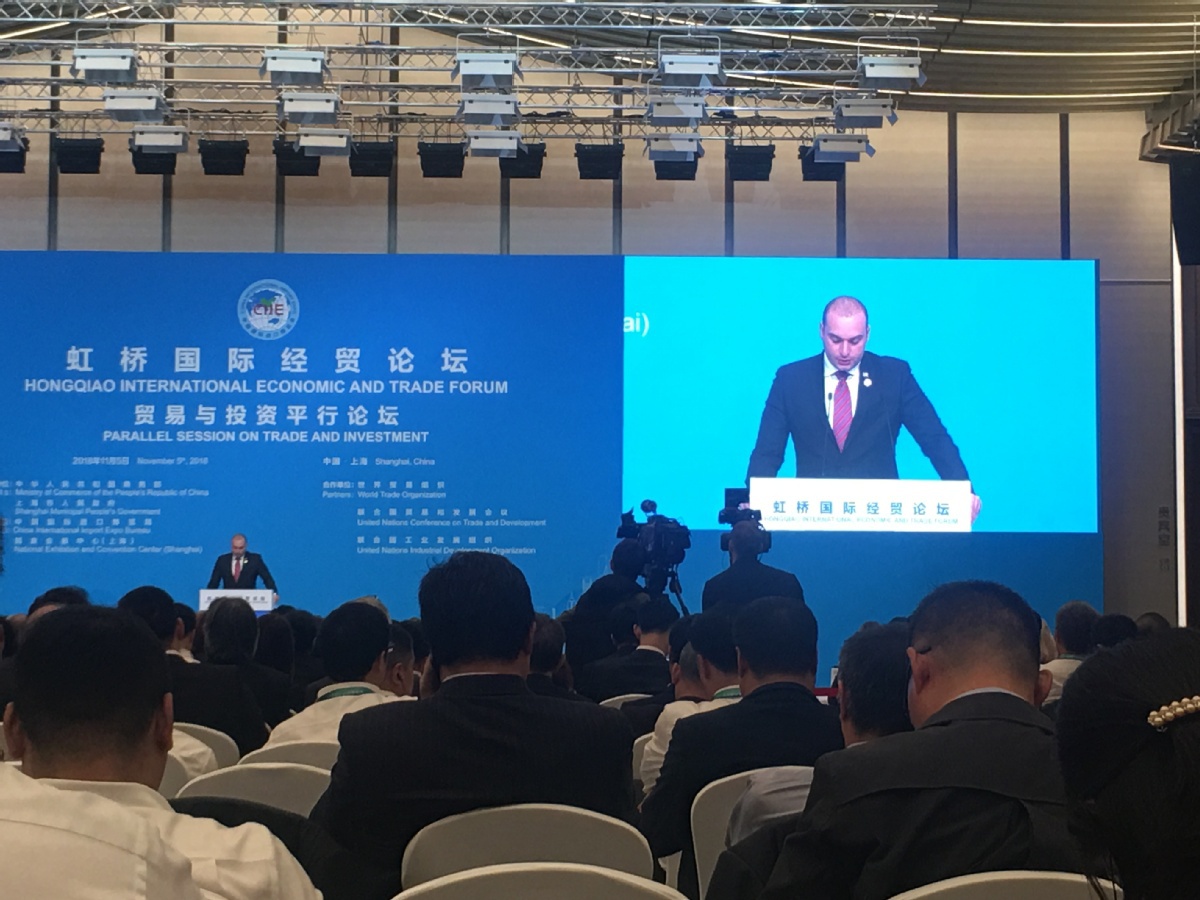Expo to boost consumption, global growth


The ongoing China International Import Expo could help the world economy overcome part of the challenges facing economic globalization and stem the spread of unilateralism and protectionism. The reason: it is aimed at facilitating a new round of high-quality opening-up and boosting qualitative development, which in turn will promote trade liberalization and multilateralism.
This is the first expo of its kind not only in China but also the world. As a new opening-up and cooperation platform, the import expo, which started on Monday and ends on Saturday, has drawn more than 3,600 quality enterprises from around the world. Exhibitors from different parts of the world are offering, among other things, goods and services, tourism destinations and investment to demonstrate their countries' development levels and achievements. Which is a good way to promote inclusive globalization.
The expo will share different countries' development achievements with the participants and visitors. Facing the rising trend of anti-globalization and protectionism, President Xi Jinping has said on many occasions that China will never close the doors to its market; instead, it will open them wider. In fact, since the 18th National Congress of the Communist Party of China in November 2012, the country has made remarkable achievements in terms of economic development, which has become an important driving force and stabilizing factor for the world economy.
In 2017, China's import grew at 18.7 percent year-on-year, which was at least 8.9 percentage points higher than the US'. China's imports accounted for 10.2 percent of the world total last year, up 0.5 percentage points. The rapid expansion of China's imports has widened the export market for other countries, created more jobs and directly influenced the supply and demand pattern of the global commodity market and prices of goods. Besides, China contributed to one-third of global economic growth in 2017.
China's total commodity import is expected to reach $8 trillion in the next five years. China is holding the import expo also to fulfill its promise of deepening opening-up and sharing the fruits of its economic development with the rest of the world, in order to help build a community with a shared future for humankind. And if promoting liberalization in order to boost global growth is part of China's commitment to boost global development, the import expo is an extension of its Belt and Road Initiative.
The expo also shows China today is more confident of further opening up its market, as it knows that in the long run, the expo will help upgrade domestic consumption and cultivate new growth drivers.
The domestic consumption structure and industrial investment structure have drastically changed. Because of the continuous improvement in people's living standards, thanks to the ever-increasing household incomes and expanding middle-income group, the consumption upgrading process has accelerated. For example, over the past decade, China's foreign consumption grew in double digits a year-and domestic consumption has contributed more than 65 percent to China's growth. In this sense, the expo will help increase the import of high-quality consumer goods and services, which will not only boost domestic consumption-by meeting people's diversified and personalized consumption demands-but also help upgrade the consumption structure.
The expo will also optimize resource distribution and promote supply side structural reform. The Chinese economy has entered a high-quality development stage, which requires better use of global resources, and the expo will help promote the free flow of production factors and optimize the resource distribution chains.
Equally important, the expo will introduce advanced foreign technologies, standards and management experiences to China, which in turn will strengthen domestic enterprises' innovation capability, facilitate the upgrading of the traditional industries, cultivate emerging strategic industries and improve industrial competitive advantages.
The author is a researcher at the Foreign Trade Research Institution, the Chinese Academy of International Trade and Economic Cooperation.

































